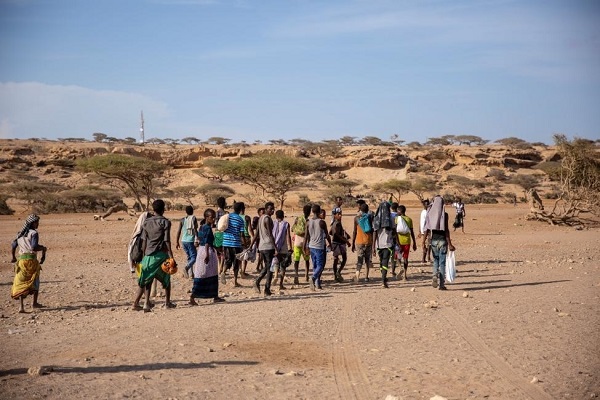Nairobi, (Samajweekly) The climate emergencies, including droughts, floods and wildfires that have escalated in the Horn of Africa region are to blame for the forced migration of civilians, the International Organisation for Migration (IOM), a specialised UN agency said.
More than two million people have been internally displaced in Djibouti, Ethiopia and Somalia amid a prolonged dry spell, IOM said in a statement issued in Nairobi, the capital of Kenya on Wednesday, citing statistics from humanitarian agencies.
Justin McDermott, IOM’s Deputy Regional Director for the East and Horn of Africa, said that tackling the climate crisis will aid efforts to stabilise human mobility, peace and green growth, Xinhua news agency reported.
According to McDermott, a cross-border response was imperative in order to arrest the growing crisis of forced migration and ethnic tensions fuelled by climate-induced calamities like droughts in the region.
More than 20 million people are grappling with acute food insecurity in Ethiopia, Kenya and Somalia amid the worst drought that has hit the Horn of Africa region in the last four decades, according to relief agencies.
McDermott called for policy coherence and speedy implementation of local, national and regional interventions to tackle climate emergencies and their spillovers, including forced mobility.
He said that a two-day workshop convened by IOM and partners in Nairobi on Wednesday will explore innovative ways to address climate change as a means to spur green economic development and safe mobility in the region.
McDermott added that taming the climate crisis in the Horn of Africa region is key to facilitating safe, orderly and humane migration, besides hastening the realisation of the UN 2030 Agenda.
The Horn of Africa region is often described as a climate hotspot, with regular occurrences of droughts, floods, landslides and wildfires triggering large-scale displacement of civilians, including nomads and subsistence farmers.









